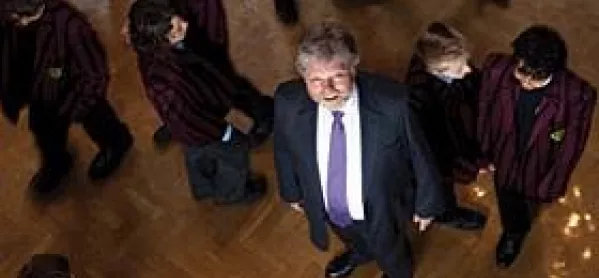A-levels aren’t the problem; examiners are

As Michael Gove prepares to reform A-levels in England, including a return to a linear two-year course with one set of exams at the end, the chairman of the Headmasters’ and Headmistresses’ Conference (HMC) has some advice for him.
At this week’s annual gathering in St Andrews of the heads of the country’s leading independent schools, Ken Durham said A-level exam standards should, in fact, be better policed, rather than be subject to structural reform.
Announcing his plans, education secretary Mr Gove said he had been prompted by universities complaining that the qualification was not preparing students sufficiently well.
But Mr Durham, who is also head of University College School in Hampstead, north London, said root-and-branch reform was not as important as maintaining standards in the exams themselves. The courses, content and teaching is up to scratch, but the examining isn’t, he added.
“I don’t think the quality of examiners is robust enough,” he said ahead of his keynote address. “The quality of A-level teaching is very good, but the quality of A-level exams is very poor. There is a trend towards questions that aren’t a proper culmination of A-levels. I think the fault lies with the exams and not the courses.”
In his keynote speech, Mr Durham told his audience in the Scottish seaside town that some “exam boards are on their last legs”. “The system is not robust, not reliable and not consistent. My own view is that the issue is more worrying at A-levels,” he added.
These accusations have, of course, been rejected by those who administer them. One exam board said schools were welcome to raise queries with it if they were worried about particular subjects.
“If schools have very specific concerns, we’re happy for them to contact the relevant subject team to look at those,” said a spokeswoman for AQA. “We have confidence in the quality of our specifications, which are accredited by the regulator.”
But Mr Durham did not restrict his comments to the exam system. He also had firm words for universities, pointing out that they need to collaborate far better with both independent and comprehensive schools in the future.
The HMC recently commissioned polling group Populus to ask 1,000 final- year university students - half from independent schools and half from the state sector - to talk about their experiences of both forms of education.
“They spoke warmly of university,” Mr Durham said, “but they were more warm about their school days. I think there is far too little connection and co-operation between what happens at school and university.
“It’s not joined up; the two are run by different government departments, which is mad. There is a lot of focus on a university’s attention to research, but, in my view, too little to the teaching and care of students.”
Mr Durham also addressed the rise of academies and the recent free-schools initiative, which have both begun to provide competition to independents.
“They market themselves as independent state schools,” he said. “It’s competition and we can’t be mealy-mouthed about competition. But the independent sector has always been remarkably responsive to market conditions and this is certainly another aspect of it. It’s an active marketplace and that’s good. Competition keeps you on your mettle.”
But Mr Durham said independents should be concentrating on making sure they tell parents thinking of looking at free schools or academies about the benefits of sending their children to a fee-paying school instead.
“We have freedom of curriculum, freedom of finances and freedom of admissions,” he said. “These are the things where we can differentiate ourselves. There are a huge variety of opportunities at independents.
“To suggest we are like 1950s grammar schools is nonsense.”
PRIMARY LINKS
The HMC has set up a Primary School Academy Group to enable some independents to sponsor underperforming primaries.
City of London School head David Levin, chair of the new HMC group, has written to HMC members to urge them to consider sponsoring a primary school alongside a business or a charity.
HMC chairman Ken Durham said he “didn’t know” how many of its members would take up Mr Levin’s call to arms. “It would be foolish to say all independents will sponsor an academy, but I think a number will,” he said.
He added that he expected independents to look to primaries rather than secondaries “simply because they are smaller”.
Photo credit: Teri Pengilley
Original headline: A-levels aren’t the problem; the examiners are
Keep reading for just £1 per month
You've reached your limit of free articles this month. Subscribe for £1 per month for three months and get:
- Unlimited access to all Tes magazine content
- Exclusive subscriber-only stories
- Award-winning email newsletters